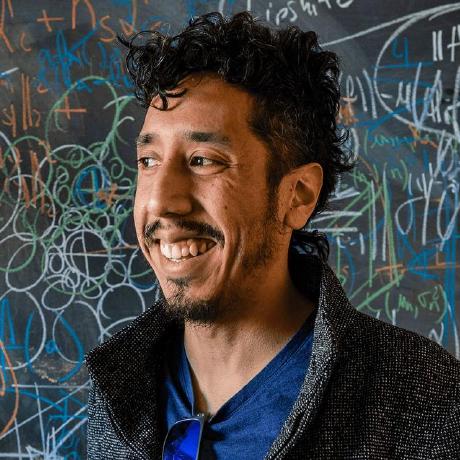
Emergent Properties of Foveated Perceptual Systems
Description
In this talk I will introduce foveated perceptual systems (Deza & Konkle, 2020), inspired by human biological systems, and examine the impact that this foveation stage has on the nature and robustness of subsequently learned visual representation. Specifically, these two-stage perceptual systems first foveate an image, inducing a texture-like encoding of peripheral information, which is then inputted to a convolutional neural network (CNN) and trained to perform scene categorization. We find that: 1-- Systems trained on foveated inputs (Foveation-Nets) have similar generalization as networks trained on matched-resource networks without foveated input (Standard-Nets), yet show greater cross-generalization. 2-- Foveation-Nets show higher robustness than Standard-Nets to scotoma (fovea removed) occlusions, driven by the first foveation stage. 3-- Subsequent representations learned in the CNN of Foveation-Nets weigh center information more strongly than Standard-Nets. 4-- Foveation-Nets show less sensitivity to low-spatial frequency information than Standard-Nets. Furthermore, when we added biological and artificial augmentation mechanisms to each system through simulated eye-movements or random cropping and mirroring respectively, we found that these effects were amplified. Taken together, we find evidence that foveated perceptual systems learn a visual representation that is distinct from non-foveated perceptual systems, with implications in generalization, robustness, and perceptual sensitivity. These results provide computational support for the idea that the foveated nature of the human visual system might confer a functional advantage for scene representation. I will end the talk by briefly mentioning ongoing work that uses foveation in computer vision, simulated agents and robots.
Link to Zoom Webinar: https://mit.zoom.us/j/91907373441
Speaker Bio
Arturo Deza received his B.Sc. in Robotics (Ingeniería Mecatrónica) in 2012 from Universidad Nacional de Ingeniería in Lima, Peru. He then completed his Ph.D. in Dynamical Neuroscience at the University of California, Santa Barbara in 2018 advised by Miguel Eckstein where he began his research on visual search and foveated vision in humans and machines. In 2019, Arturo moved to Harvard University as a PostDoctoral Fellow with Talia Konkle at the Department of Psychology, and from early 2020 to date he is a PostDoctoral Research Associate working with Tomaso Poggio at MIT's Center for Brains, Minds and Machines. His research interests span across the fields of psychophysics, representational learning, human-machine perception, and recently robotics.
Additional Info
Upcoming Cog Lunch Talks:
July 14, 2020 - Ashley Thomas
July 21, 2020 - Brandon Davis
July 28, 2020 - Christopher Kelly
August 4, 2020 - Stephan Meylan
August 11, 2020 - OPEN
August 18, 2020 - Martin Schrimpf

